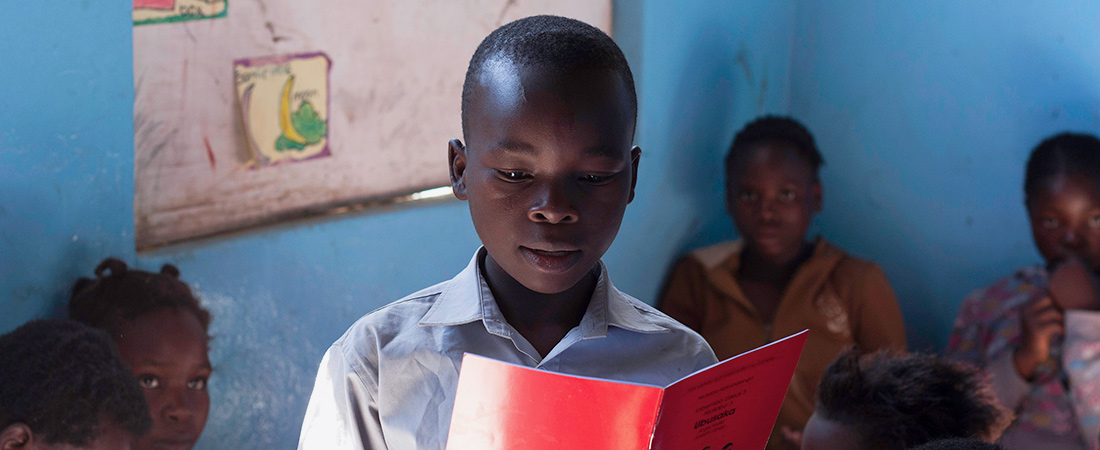
Literacy and mathematical programs deliver the promise of education to millions of children around the world.
We create and test learning experiences that lead to deep understanding and an ability to act thoughtfully upon the world. Whether in settings that are rich or poor in resources, we are committed to building sound foundations in literacy, science, and mathematics.
Through engaging classroom curricula, media instruction, digital tools, and teacher training, we equip children and young adults with the fundamentals they need to be successful—in school and in life.
Related Content
A Second Chance at School in Mali
In Mali, accelerated education is helping thousands of children get back to school.
Is Social Media Harmful to Students with Disabilities?
A new report on social media finds some benefits, but higher cyberbullying rates.
3 Ways to Stop the Summer Slide
Want to help kids keep learning this summer? Here are some tips for parents and caregivers.
How Schools Can Support Students Affected by Opioids
The trauma children experience as a result of opioid misuse at home can affect how they do in school—but schools can help.
3 Ways Schools Can Support Children Affected by the Opioid Crisis
Schools are uniquely positioned to address the needs of children exposed to trauma, says Shai Fuxman.
Accelerating Education in Liberia
An estimated 300,000 Liberian children do not attend school. What’s being done to provide more access to education?
Projects
Resources
Here are a few of our resources on behavioral, physical, and mental health. To see more, visit our Resources section.
The Learning Generation Report presents an action plan to deliver and finance an expansion of educational opportunity for more than 260 million children and youth who are not in school today.
Designed by EDC and the Ford Motor Company Fund, the Ford Next Generation Learning (NGL) initiative includes an interdisciplinary high school curriculum, professional development, and a successful
This toolkit links parents to a wide array of resources—including “fast facts,” fun family activities, and scholarship info—to prepare children and youth to thrive in our wired world and its workplaces.
This toolkit provides program designers with information on how to develop and implement effective early childhood interactive audio instruction (IAI) programs in a range of settings.
This collection of essays shares insights and strategies from EDC’s work to support teachers’ professional learning, as well as links to an array of EDC’s resources for teachers.
Science skills and habits of mind are the missing elements of the foundational skills package, and their addition to the mix can accelerate education recovery and reform. In the context of climate change, these skills are even more critical. This report makes the case for investment in primary science as a foundational skill set in low-resource contexts.
This paper explores how the Government of Mali, with support from the U.S. Agency for International Development and Education Development Center, Inc., used innovative tools and methods (including georeferencing, mapping, and school/village surveys) to better understand the twin challenges posed by home-school distance and inefficient teacher distribution in rural communities and why Mali chose an old-school solution: one-room, multi-grade schools equipped with trained teachers and appropriate materials.
In this briefing book, the leaders of the Massachusetts Computing Attainment Network (MassCAN) describe the goals, key accomplishments, and future directions of the partnership.
This study reviews student assessment data collected from 15 EDC projects to determine the impact of interactive radio instruction (IRI) on student achievement in hard-to-reach areas.
What does it mean to be data literate in the world of “big data”? What should we teach students to better prepare them to participate in our workforce and society? This report answers these questions and shares takeaways from a three-day workshop led by EDC and IBM, "Building Global Interest in Data Literacy: A Dialogue."